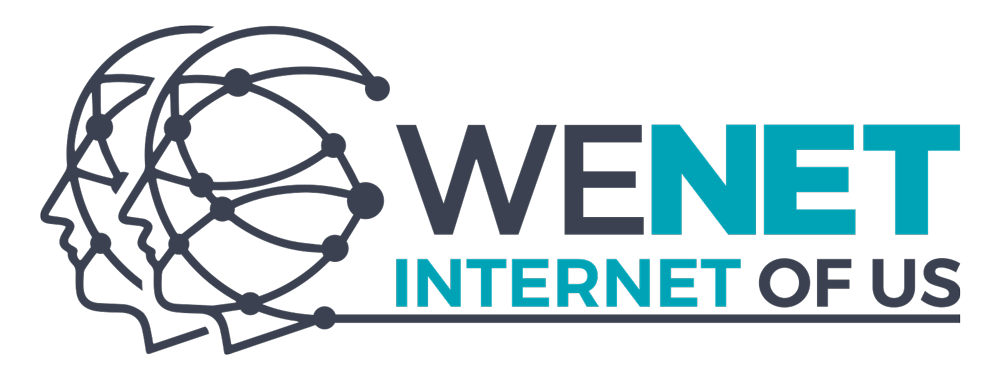The end of WeNet, the beginning of the Internet of Us
The run of the WeNet project – which saw the fruitful collaboration of a multidisciplinary consortium hailing from several European countries, and beyond, working together for four and a half years – has come to a conclusion, but we’d like to leave you with a few facts and figures on what has been achieved, now to serve as a new jumping-off point for the next adventures of the partners (and any interested parties) in continuing building the Internet of Us.
What the journey brought
“Internet has helped in transcending our spatio-temporal limitations. Still, it provides little or no support when it comes to helping develop and maintain social relationships that transcend geographical and cultural backgrounds,” explains WeNet Project Coordinator Fausto Giunchiglia (University of Trento), pinpointing the issue at hand, and summing up what the project brought to the table: “The Internet of Us addresses this gap by providing a diversity-aware, machine-mediated paradigm for social interactions.”
The final review of the project emphasised that WeNet delivered exceptional results in this direction – with significant immediate or potential impact – considering the ambitious objective of an empirical study about diversity within the context of social practices, and the hardships created by the advent of COVID-19. It was also underlined how the partners made it all work through a remarkable synergy, specifically concerning the scientific research level.
We succesfully created a network and a community around the project with an online presence reaching over 20,000 users, and by engaging with stakeholders and general public through the organisation of 6 events – in-person, and when the pandemic wouldn’t allow that, in online mode – and by participating to over 120 external events, including renowned international scientific conferences in the field of AI and ethics.
We launched an eLearning platform, to increase public outreach, offering over 30 hours of recorded video lectures, educational material and interactive activities for researchers, students, developers, and other interested parties.
We developed a fully-functional app, and related high-level infrastructure, which the final review highlighted as a major result of the project – with the potential to benefit various stakeholders, including SMEs, researchers and developers’ communities – and on the right track to potential commercialisation. The app was also the cornerstone of our pilots – which were conducted in a wide range of sites worldwide, including universities, involving around 10,000 participants – and the key element of our Open Call, which ultimately involved 6 experimenting beneficiaries, from 5 different countries. The feedback on the app from the Open Call winners was very positive: they stressed its business value in the development of diversity-aware apps, and highlighted how it saved them time and money through the development of their projects.
Delivering on our initial plan, we produced an outstanding research output, with partners generating and submitting over 100 scientific publications including conference papers, journal articles and special journal issues (available for reading on this very website on other open access platforms) – often in connection with dedicated workshops – which greatly helped spreading the word on our work in the community and lay the groundwork for future explorations and developments.
Finally, as also remarked upon final review, WeNet significantly served the purpose of understanding diversity and its evolution from an ethical perspective. The project succeeded in casting its diversity mission in a feminist and social inclusion light: not only by publishing papers discussing gender and ethnic diversity/marginalisation in the context of AI and emerging technologies, but also through endeavours such as the special pilot on Afghan refugee women – conducted in Frankfurt – which is an illustration of this approach, showing how the ‘ask-for-help’ protocol at the core of the WeNet app could be taken outside the student context into an area highlighting the potential for the WeNet platform to address other pressing social needs, such as leveraging peer support for promoting inclusion.
The takeaway message
The satisfying overall conclusion that we can draw is that the lessons learned will surely benefit further projects and the viability of our app and related types of platforms – as well as helping to identify and mitigate implementation risks in this technology area – but there’s still a lot of work ahead of us, and, to quote our manifesto, we “welcome the opportunity to support non-profit community organisations in the adoption of our platform and the research community to consider our work as a jumping off point for further investigations into diversity in social relations.”





